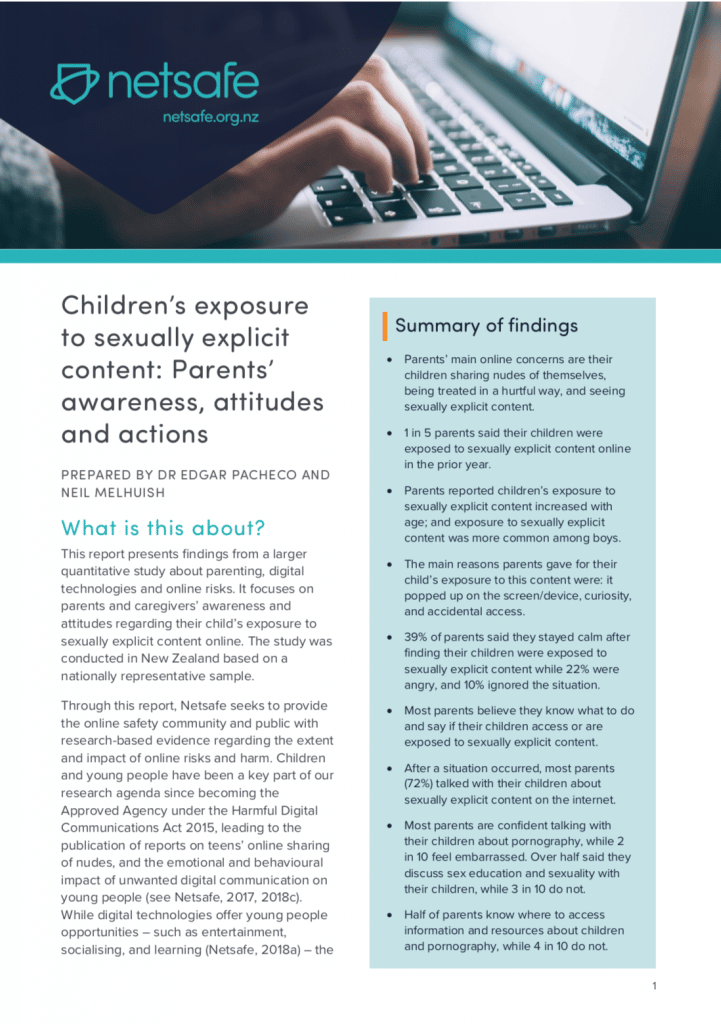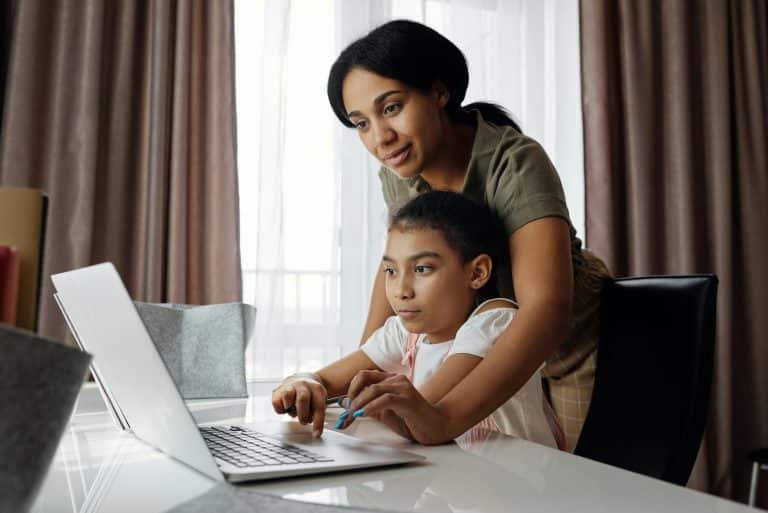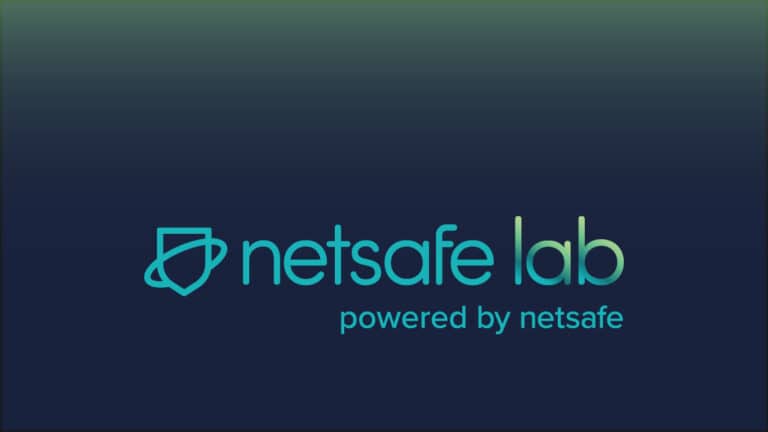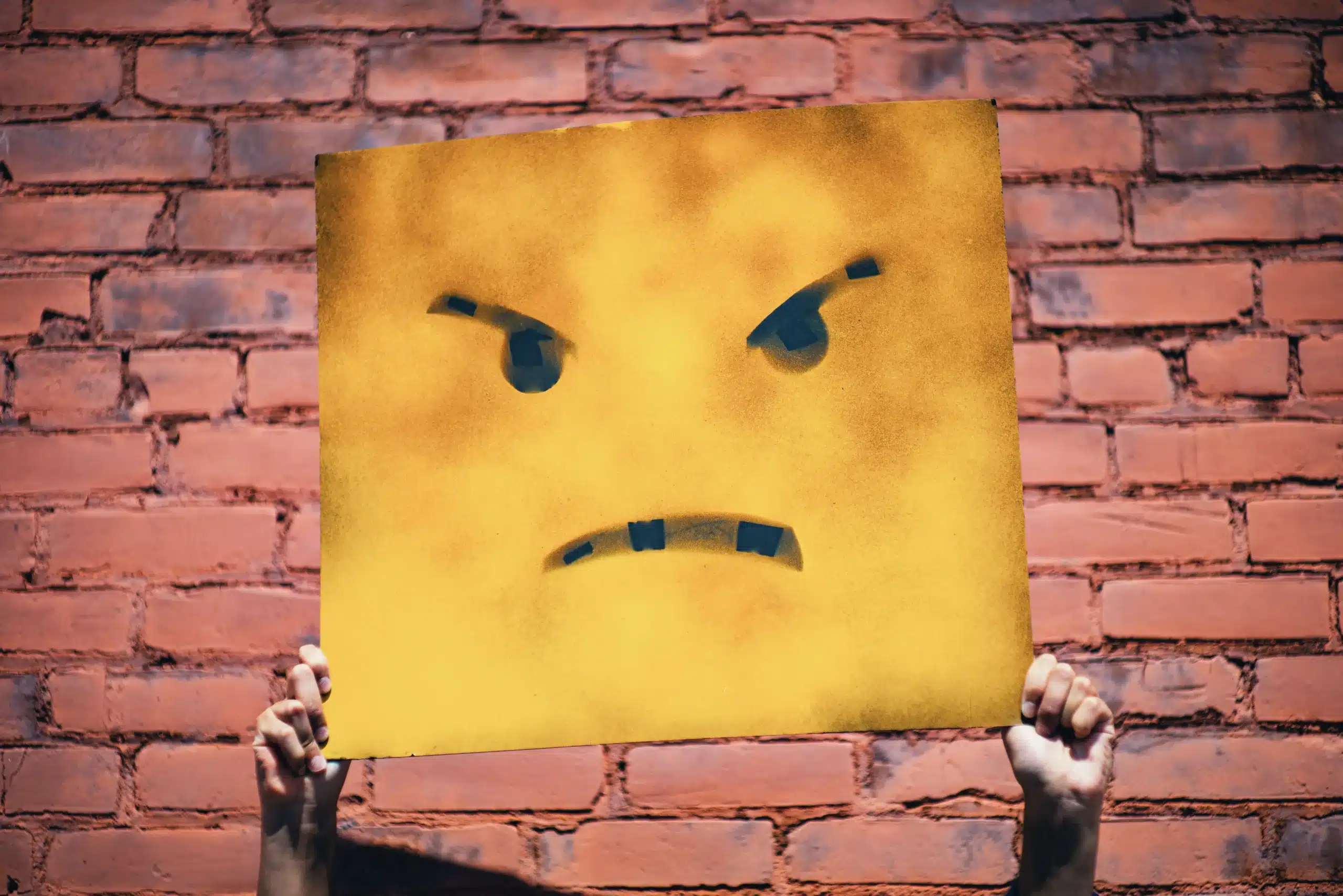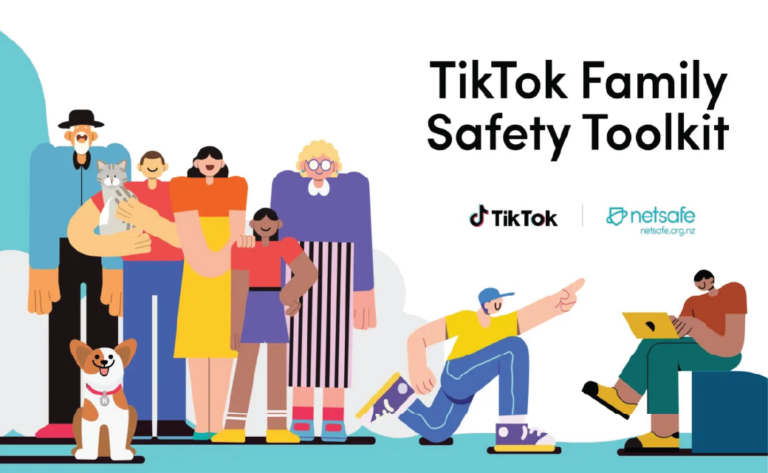Parenting & Pornography Report
This report released December 2018 presents findings from a larger quantitative study about parenting and Pornography, digital technologies and online risks. It focuses on parents and caregivers’ awareness and attitudes regarding their child’s exposure to sexually explicit content online. The study was conducted in New Zealand based on a nationally representative sample. Summary of findings…

This report released December 2018 presents findings from a larger quantitative study about parenting and Pornography, digital technologies and online risks. It focuses on parents and caregivers’ awareness and attitudes regarding their child’s exposure to sexually explicit content online. The study was conducted in New Zealand based on a nationally representative sample.
Summary of findings
- Parents’ main online concerns are their children sharing nudes of themselves, being treated in a hurtful way, and seeing sexually explicit content.
- 1 in 5 parents said their children were exposed to sexually explicit content online in the prior year.
- Parents reported children’s exposure to sexually explicit content increased with age; and exposure to sexually explicit content was more common among boys.
- The main reasons parents gave for their child’s exposure to this content were: it popped up on the screen/device, curiosity, and accidental access.
- 39% of parents said they stayed calm after finding their children were exposed to sexually explicit content while 22% were angry, and 10% ignored the situation.
- Most parents believe they know what to do and say if their children access or are exposed to sexually explicit content.
- After a situation occurred, most parents (72%) talked with their children about sexually explicit content on the internet.
- Most parents are confident talking with their children about pornography, while 2 in 10 feel embarrassed. Over half said they discuss sex education and sexuality with their children, while 3 in 10 do not.
- Half of parents know where to access information and resources about children and pornography, while 4 in 10 do not.
About research at Netsafe
Netsafe established a research programme in November 2016 as part of its role as the Approved Agency under the Harmful Digital Communications Act 2015. Netsafe’s research explores the relationship between digital technology, people and society primarily in the context of the risk and impact of harmful digital communications.
Netsafe’s research programme is contributing with exploratory research of topics involving adult and young New Zealanders. Our contribution includes:
- Adult New Zealanders and harmful digital communications.
- Teenagers and the prevalence of the sharing of nudes (‘sexting’).
- Teenagers’ interaction with digital technologies and views on online safety.
- Perceptions of teenagers about digital risks and harm (qualitative).
- A measure of teenagers’ personal experiences of digital risks and harm.
Work with us
We’ve worked on projects with the Ministry for Women (NZ), UK Safer Internet Centre, University of Plymouth (UK), Office of the eSafety Commissioner (Aus), Office of Film & Literature Classification (NZ), UNICEF (NZ), and Waikato University’s CROW Lab. Find us at the conference to discuss how we can work together, or email [email protected]
